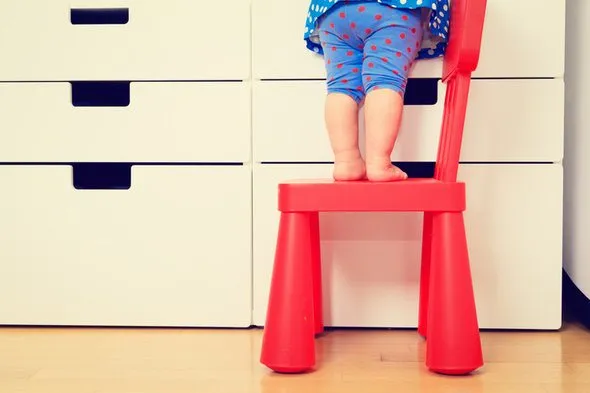
Once you have decided that you would like to buy a home, the first thing you need to do is figure out how to ‘finance’ the purchase. This means deciding how much of your savings you are going to use as a down payment, how much money you want to borrow (the mortgage) and choosing the right type of mortgage. While there are several types of mortgages on the market, the two main types of loans are fixed-rate and variable-rate mortgages.
Check out our mortgage calculator.
The first thing you will need to do is decide between these two main types. Depending on a few factors, one can make much more sense for you than the other. Your monthly payment will never change through the life of the loan with a fixed-rate mortgage. Your payment on a variable-rate mortgage, after being fixed for the first few years, can change based on the limitations of that loan product and fluctuations in market interest rates. One thing that can make a variable-rate mortgage desirable is the initial few years of the loan when the interest remains fixed, generally at a notably lower rate than is available with a fixed rate mortgage.
How long do you plan to live in your new home?

One of the most important factors in deciding between a fixed-rate and variable-rate mortgage is the amount of time you plan to live in your new home. If you are looking to live in your new abode for only a few years before moving again, this would favor the variable rate loan. The variable-rate mortgage makes more sense in this case because interest rates for the time during which you would be living in the home would be lower than those for a fixed-rate mortgage. This would likely mean significant savings on your part.
However, when looking at a variable-rate mortgage, you want to consider the worst-case scenario; this means having sufficient income or access to savings to support you if your monthly payment reaches the maximum allowed. So if you’re planning on buying and selling your place over less than seven years, with a relatively high degree of certainty, you should think about a variable rate mortgage.
Market Fluctuations and Mortgage Choices
If you are not planning on moving within a few years after buying your home, we prefer fixed rate mortgages and the comfort of always knowing what your monthly payment will be. You might be tempted to choose a variable-rate mortgage being enticed by the initial lower rate, but if market interest rates rise the eventual expenses from your new adjusted interest rate could end up outweighing any initial savings you may have had. If the interest rate raises enough, the variable-rate mortgage could cost you more than a fixed-rate mortgage over time.
Related Article: 4 Questions to Ask Before Getting an Adjustable Rate Mortgage
When to Choose Fixed-Rate Mortgages
Fixed rate mortgages are generally the safer option. You find a monthly payment that you are comfortable with and lock it in for 30 years. So from a risk perspective, they have a lot of value. If rates increase you are happy and if interest rates decrease significantly you can refinance to take advantage of the lower rates.
How Much Risk Can You Afford?

This is an important question to ask yourself when choosing between fixed-rate mortgages and variable-rate mortgages (of inherently higher risk). The initial monthly payments on a variable-rate mortgage might be something you can afford with your current income. But if the maximum possible monthly payment for this loan, determined by the caps set to limit the amount the interest can change, is outside of your price range, a fixed-ratemortgage is the safer choice for you.
You not only have to consider what mortgage best suits your lifestyle and personal finances, there is also the economic reality to contend with. The strength of the economy is always in flux, and interest rates will fluctuate over the course of your loan term. It is impossible to predict exactly what the economy will do, and sometimes all you can do is make your best estimate when it comes to the market. If you are buying for the first time, this may feel almost like you are gambling with your money. While you can’t predict exactly what the economy will do, you can make a stronger prediction based on your own financial position.
Related Article: The Pros and Cons of a Piggyback Mortgage Loan
Bottom Line
In the end, whether you choose a fixed-rate or variable-rate mortgage, you need to know what your limits are in terms of what you can actually afford with your present income. This may sound like a lot to take into consideration, but SmartAsset can actually tell you when a fixed or variable-rate mortgage makes the most sense. As long as you can tell us a little about your budget, we can do the rest of the work for you!
Next Steps
- Use SmartAsset’s home affordability calculator to determine how much how you can realistically afford. You can then compare mortgage rates and figure out which type of mortgage makes the most sense for you.
- You should also think about sitting down with a financial advisor to figure out how buying a home fits in with your overall financial plan. A matching tool like SmartAsset’s can help you find a person to work with to meet your needs. First you’ll answer a series of questions about your situation and goals. Then the program will narrow down your options from thousands of advisors to three fiduciaries who suit your needs. You can then read their profiles to learn more about them, interview them on the phone or in person and choose who to work with in the future. This allows you to find a good fit while the program does much of the hard work for you.
Photo credit: ©iStock.com/SIphotography, ©iStock.com/Portra, ©iStock.com/Nadezhda1906